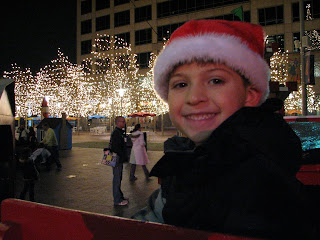Random Stuff:*I hate Pittsburgh. Seriously, I hate the frickin Steelers. Of course the hatred is fueled by the ineptness of my team, but we are going to turn it around any decade now, then maybe I won't hate the Steelers so much. Nah.
*We get it, the clydesdale's granddaddy came to America from Scotland, found his love, worked his way onto the Budweiser team, and then passed on the job to his progeny. Living the American dream. Very touching. So why did his grandson have a Scottish accent?
*My son Anthony is pretty sure mosquitos--he calls them "mocheetos"--are bad guys, which seems like a solid conclusion. He is also pretty sure that mocheetos live in caves with strangers (who are also bad guys), and that their greatest natural enemies are cows, because "Cows eat the mocheetos," which is why there are no mocheetos in winter.
*Anthony also thinks we should get coats for ladybugs, to keep them warm so they don't come in the house when it gets cold outside.
*A final note on the Anthony front: this morning, as his mother drove him to the store to pick up some mulch, fertilizer, and other springtime goodies, Anthoyn declared that it would be a good time for us to plant a cookie tree. His mother said, "Well, okay, but I don't know if the store will have any seeds for a cookie tree." To which he said, "That's okay, we'll just plant the crumbs."
*Dominic has a girlfriend at his preschool. Her name is Sydney, and she tells her parents all the time that she is going to marry Dominic because he is such a very nice boy. There is a lot of love there. So this morning Dominic made a proposal to his mother that we offer Mary to Sydney's parents in a trade for Sydney. Dominic is now the GM for Team Bruscino.


